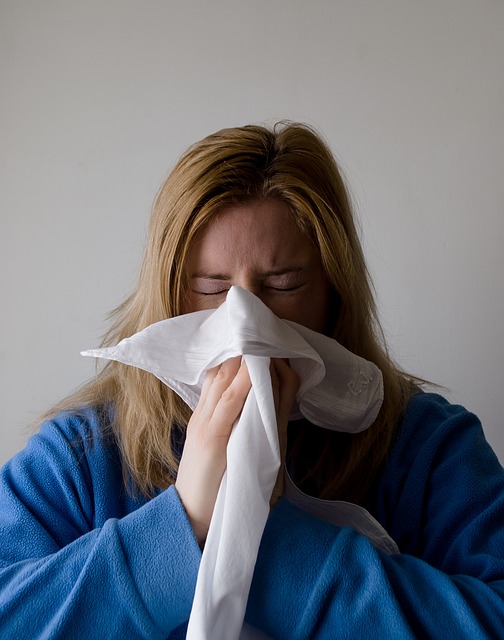Achoo! You’re sneezing uncontrollably, your nose is running like a faucet, and you feel, just … blah. These icky symptoms keep rearing their ugly head, which leaves you scratching yours, wondering: Why do I keep catching colds …. or, wait, could I have seasonal allergies?
Colds and allergies can share similar symptoms, like runny nose, sneezing, and fatigue, but they’re actually very different conditions.
Here’s how to tell the difference between a cold and an allergy, so you can get the proper treatment and get rid of those symptoms for good.
What Is a Cold?
Colds are caused by viruses. Colds are minor infections of the nose and throat caused by more than 200 different viruses, with rhinovirus being the most common. “Fifty percent of the time, especially in adults, it’s a rhinovirus, says Clifford Bassett, MD, an allergist at NYU Langone Health and author of the book The New Allergy Solution. “There are many different types and that’s the bad news—that you can have a cold this week and next month have another cold.”
Colds come on suddenly. “Cold usually kicks in pretty abruptly. You may feel lousy, sore throat, runny nose, fatigue, achy, feverish a little bit, and that comes on very quickly over 12 to 24 hours,” says Dr. Bassett, whose practice website is allergyreliefnyc.com.
Colds resolve themselves within a week or two. Colds resolve for the most part in five to seven days, but they may last up to two weeks, says Dr. Bassett.
Colds are more common in fall and winter months. “Colds are more prevalent during the fall and during the prolonged winter period [when] we spend a lot of time indoors and are exposed to cold viruses,” says Dr. Bassett.
What Are Allergies?
Allergies are an abnormal immune reaction. “With allergies it’s completely different. There’s no fever involved, it’s not an infection,” says Dr. Bassett. It’s an immune response to things that are normally harmless, such as pollen, molds, and dust mites.” For people with allergies, these substances react with your immune system, causing histamine and other chemical substances to be released, which then causes various symptoms.
Itchiness is a symptom that’s unique to allergies. “Itchiness is one of the big differentiating symptoms between allergies and a common cold. Itchiness of the eyes, itchiness of the nose, along with other typical symptoms, sneezing, runny nose, post nasal drip, and so forth—all of these things go along with seasonal allergies or even year-round allergies,” says Dr. Bassett.
Allergies can last for weeks—as long as an allergen is present. For example, ragweed or grass pollen seasons last for six weeks, so if you’re allergic to those substances, your symptoms may last that long too.
Allergies come with the seasons. Seasonal allergies are triggered at certain times of year, most commonly in the spring, summer, and early fall, and are usually caused by pollen from trees, weeds, and grasses. In many areas of the United States, spring allergies begin in February and last until the early summer.
How to Treat and Prevent Colds
Even though there’s no cure for the common cold, there are many ways to manage your symptoms. Feel better faster by getting plenty of rest and fluids, and eating more of these cold-fighting foods. Runny nose, sneezes, and aches and pains can be helped with OTC decongestants and nonsteroidal anti-inflammatory medicines.
To prevent catching a cold, wash your hands often with soap and water, avoid contact with anyone with a cold, and make sure you’re not guilty of these seemingly innocent cold-triggering habits.
How to Treat and Prevent Allergies
“[With] allergies, [we have] so many wonderful solutions in terms of prevention and proper treatment that reduce symptoms,” says Dr. Bassett. Allergy symptoms can be treated with home remedies like nasal irrigation, and medications like antihistamines, nasal steroids, or, for a longer-term approach, immunotherapy. “I’m a big fan of nasal saline spray when you have mucus. [It] thins out the mucus to promote better drainage in your nose and sinuses, and [helps] avoid complications such as a sinus infection,” says Dr. Bassett.
You can also prevent allergic reactions by avoiding things that cause them, such as pollen, house dust mites, mold, and pet dander.






























